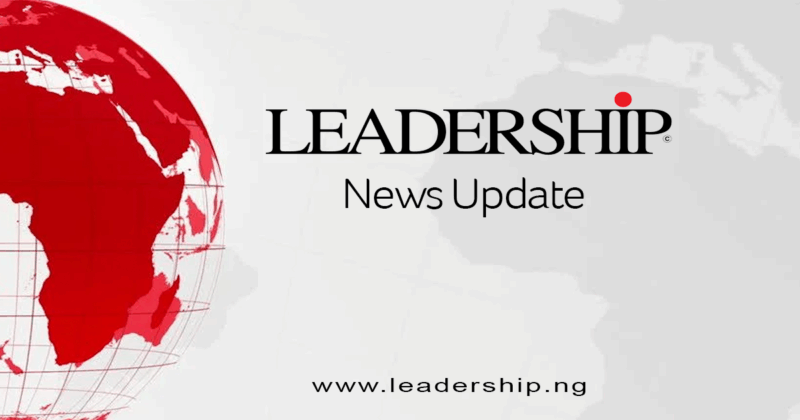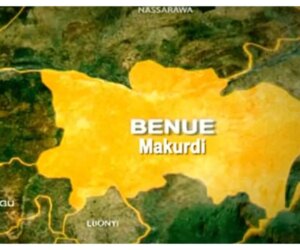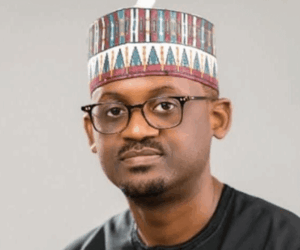There’s a funny thing about the African dream. Every year, presidents gather in some conference hall with flags behind them, speak plenty grammar about “continental integration”, pose for photographs, and return home to airports where scanners don’t work and border posts where one officer is still using a biro from 1999 to stamp a form that shouldn’t even exist.
So when I read the speeches from the C-PACT launch at the Presidential Villa on Monday, something in me tightened. It always does when leaders start discussing trade. Because on this continent, trade is the most abused word after unity.
But let me start from the beginning before I derail myself.On Monday, the Comptroller-General of Customs, Bashir Adewale Adeniyi, decided he’d had enough of Africa pretending to run a regional market with border systems that look like abandoned generator rooms. And to be fair, he didn’t mince words. He said the obvious out loud — that you can’t run the African Continental Free Trade Area (AfCFTA) with borders that behave like punishment.
Now, I’ve heard dozens of speeches like this. But this one didn’t smell of the usual ceremonial perfume. Something about the details. Something about the way he said customs holds “the richest and most granular trade data on the continent.” Anyone who has done actual reporting in West Africa knows that part is true. Customs officers know what is moving, who is moving it, who should not be moving it, and whose uncle is trying to smuggle tyres inside a consignment of tomatoes.
They also know the gaps. And those gaps are swallowing the AfCFTA promise whole.
Here’s where I paused. Adeniyi said 53 CEOs and 19 managing directors attended that launch. CEOs don’t usually wake up and attend customs events unless something has shifted. Bankers especially. Bankers don’t even attend their own weddings on time, so if they show up early for a customs platform, you know they smell money somewhere.
Trade finance. Supply chains. Cross-border settlements. They didn’t come for decoration.
Nigeria’s trade with other African countries hit ₦4.82 trillion in the first half of 2025 — up by over ₦600 billion from the previous year. That’s not small. But that spike tells me something is shaking.
Then the minister stepped up.
Minister of Trade and Investment Jumoke Oduwole, who now carries trade policy like a backpack, announced the thing many people don’t fully grasp: Nigeria has started applying preferential AfCFTA tariffs. That single line is more important than half the headlines screaming about coups and oil theft. Because preferential tariffs are where AfCFTA stops being talk and becomes a real fight for markets. Someone somewhere in Kigali or Nairobi is already eyeing our manufacturers like prey.
And then she dropped a more interesting detail — Nigeria opened an Air Cargo Export Corridor to East Africa. A dedicated corridor. Not the usual “we are working on it” speech. The thing is alive. Uganda Airlines, Customs, UNDP. Export costs down by up to 75%.
You know what 75% does for a yam farmer in Nasarawa? It turns survival into profit.
But let me not pretend everything is rosy. Because after the ministers and the presidents finish their speeches, the problem never lies in the grammar. The problem is that a truck from Seme to Cotonou can still spend five hours at a checkpoint because someone in uniform wants lunch money. And this is where President Bola Tinubu’s comments drilled deeper than I expected.
He said fragmented markets cannot negotiate with global powers. That part is obvious. But he also said something I rarely hear Nigerian leaders admit — that Africa already agreed on integration. Execution is the real work.
Execution.That word is usually allergic to our politics. It sounds like sweat. It sounds like discipline. It sounds like someone might lose a contract if the system becomes too predictable.
Tinubu (or Shettima reading Tinubu) even admitted that success will be judged by border-crossing times, local-currency settlements, movement of goods. Not comm uniqués. Not ribbon-cuttings. Not those photographs where everyone pretends to be thinking about the future while adjusting their agbada.
And then he brought up the National Single Window. For the first time, someone put dates on it. Phase one in March 2026. Full rollout by December 2026. If those dates survive bureaucracy, then maybe I’ll start believing Nigeria is finally entering the group of grown-up economies.
But here’s where the whole thing still sits on shaky legs.Look closely at the promises. Integrated customs systems. Harmonised regulations. Modernised borders. Predictable logistics. Efficient ports. These are not new ideas. These are the same things we’ve been shouting since former President Olusegun Obasanjo’s first term. The difference now — and I admit it grudgingly — is that the continent is cornered.
Most African governments don’t have a choice anymore. Europe is tightening. China is slowing. The dollar keeps misbehaving. And the youth population is multiplying faster than our infrastructure. If AfCFTA fails, Africa might not get a second shot in our lifetime.
But let me circle back to the nitty-gritty before I get accused of sounding optimistic.
African borders behave like they’re in a long-distance relationship with the modern world.
Ask anyone who has driven through Jibia or Gamboru. Half the time, the officers at the gate don’t even agree on the same process. Customs has one checklist. Immigration has another. Quarantine wants to inspect something no one has seen. Standards Organisation appears from nowhere. Then someone from an agency you have never heard of shows up with a receipt book that looks like it was photocopied in a cybercafé.
Meanwhile, AfCFTA expects goods to move freely.Freely.Even writing that word feels like stand-up comedy.
Adeniyi said customs must move from back-end operations to the centre of trade planning. That line should be tattooed somewhere inside every African ministry of trade. Because if customs continues as a glorified revenue collector instead of a trade institution, AfCFTA will remain PowerPoint fiction.
And Oduwole added her own sting — digitise Certificates of Origin. Make them interoperable. She’s right. Those certificates have built a small universe of extortion across West Africa. The moment you automate them, half the middlemen vanish.
But let me say something uncomfortable.The biggest obstacle to AfCFTA is not the technology. It’s not even the funding. It’s the political ego that comes with sovereignty. Every country wants integration, as long as integration doesn’t threaten its little fiefdoms. The customs boss wants control of data. The port authority wants control of signatures. The foreign ministry wants to issue statements. The finance ministry wants to set tariffs. The presidency wants to coordinate. Before you know it, eight agencies are holding one document like a newborn baby.
Tinubu claims Nigeria is now aligning institutions so that customs, ports, standards, banks, exporters, and regulators move in the same direction. If that alignment survives the next two budget cycles, I’ll clap.
But here’s the hard pill: African leaders like the idea of AfCFTA far more than the discipline that AfCFTA requires.
And that’s why Adeniyi’s warning about weak borders hit home.Weak borders are not neutral. They destroy industries. They scare investors. They reward smugglers. They punish legitimate exporters. And they create a shadow economy that will swallow the formal one if you blink too long.
Africa cannot build a continental market on top of border posts that still rely on diesel generators and handwritten registers. And we shouldn’t need foreign consultants to tell us that.
But let’s give credit where it’s due.
Nigeria rolling out preferential tariffs is huge. The air cargo corridor is huge. The 21% jump in exports is huge. Manufacturing growing by over 6% in one year — whether by miracle or policy — is still huge. Four new industrial parks, six more coming. Those numbers carry weight.
Yet one uncomfortable question keeps popping up in my head: will the politics of the continent allow these gains to survive?
Because make no mistake, AfCFTA is a battlefield. Every country wants to be the hub. Nigeria wants it. Kenya wants it. South Africa wants it. Egypt wants it. These ambitions will clash. And when they clash, borders become weapons.
That’s why C-PACT matters. It forces customs services — the people who actually control the gates — to talk to each other without waiting for presidents to form committees that won’t meet again till Easter.
Now, before anyone starts dreaming of utopia, let me pour cold water. AfCFTA won’t magically turn Africa into a manufacturing superpower. It won’t fix electricity. It won’t discipline governors who treat budgets like personal wallets. And it won’t stop some officers from asking traders the most annoying question in West Africa: “Anything for the boys?”
What it can do — if the reforms don’t collapse — is force Africa to finally behave like a region instead of a group of neighbours pretending not to be related.
So where does all this leave us?
Right here — at a crossroads between ambition and the same old bad habits.
If borders remain chaotic, AfCFTA dies on arrival. If data stays scattered, investors will look elsewhere. If the Single Window becomes another abandoned project, the whole thing collapses into the usual continental folderol.
But if the reforms survive, if the agencies stop fighting turf wars, if the officers at the borders learn that trade is not a personal racketeering scheme, something interesting might happen: Africa might stop exporting raw poverty and start exporting finished value.
And that is what keeps me from sinking into cynicism.C-PACT is not a miracle. AfCFTA is not a miracle. Preferential tariffs are not miracles.
They’re a test.Nigeria says it is ready. Adeniyi says customs is ready. Oduwole says industry is ready. Tinubu says execution is the new anthem.We’ll know the truth soon enough — at the border.








